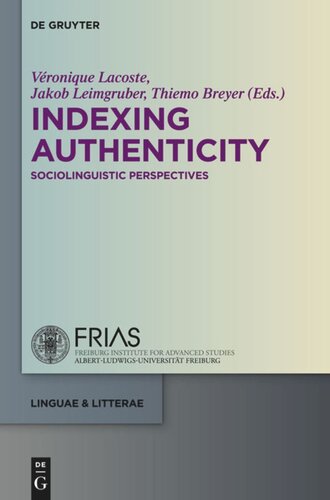

Most ebook files are in PDF format, so you can easily read them using various software such as Foxit Reader or directly on the Google Chrome browser.
Some ebook files are released by publishers in other formats such as .awz, .mobi, .epub, .fb2, etc. You may need to install specific software to read these formats on mobile/PC, such as Calibre.
Please read the tutorial at this link: https://ebookbell.com/faq
We offer FREE conversion to the popular formats you request; however, this may take some time. Therefore, right after payment, please email us, and we will try to provide the service as quickly as possible.
For some exceptional file formats or broken links (if any), please refrain from opening any disputes. Instead, email us first, and we will try to assist within a maximum of 6 hours.
EbookBell Team

4.1
50 reviewsThe concept of authenticity has received some attention in recent academic discourse, yet it has often been left under-defined from a sociolinguistic perspective. This volume presents the contributions of a wide range of scholars who exchanged their views on the topic at a conference in Freiburg, Germany, in November 2011. The authors address three leading questions: What are the local meanings of authenticity embedded in large cultural and social structures? What is the meaning of linguistic authenticity in delocalised and/or deterritorialised settings? How is authenticity indexed in other contexts of language expression (e.g. in writing or in political discourse)? These questions are tackled by recognised experts in the fields of sociolinguistics, linguistic anthropology, and contact linguistics. While by no means exhaustive, the volume offers a large array of case studies that contribute significantly to our understanding of the meaning of authenticity in language production and perception.